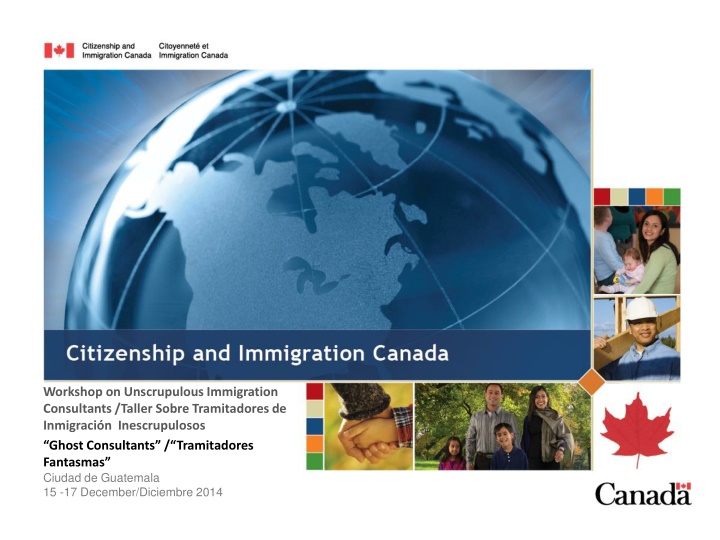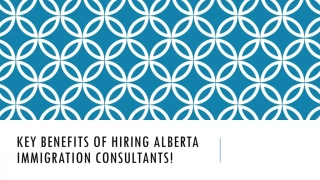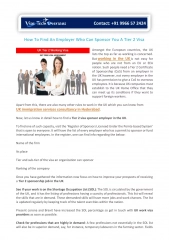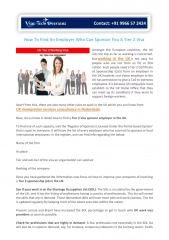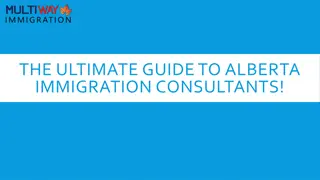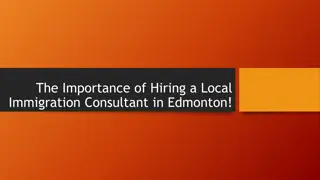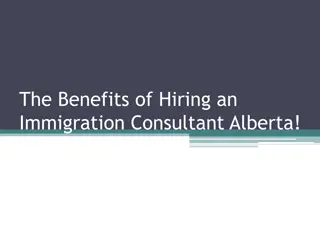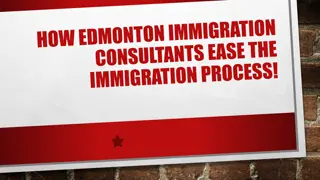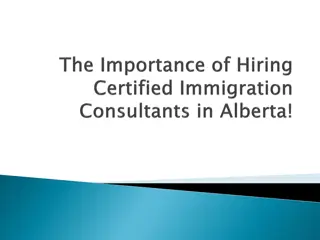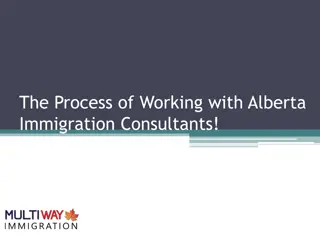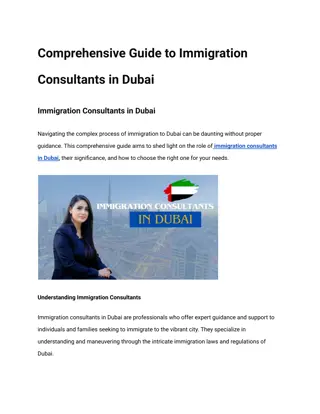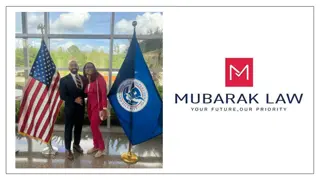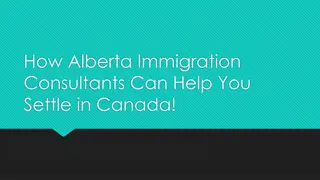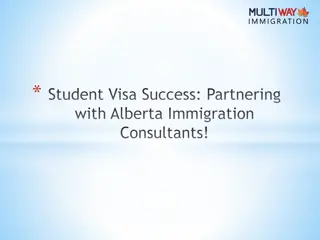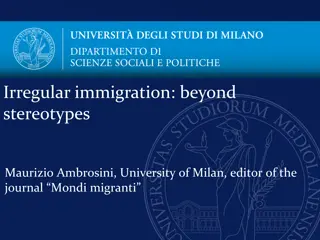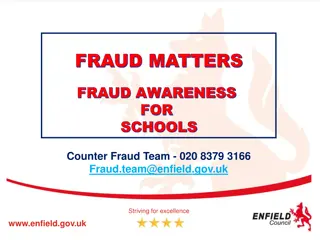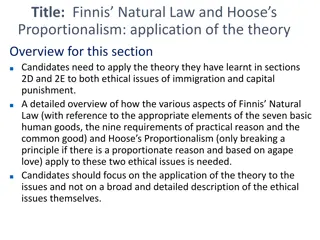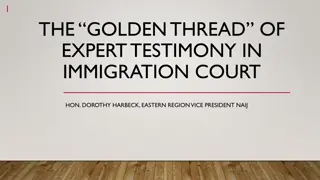Ghost Consultants and Immigration Fraud
Learn about ghost consultants, unregulated third-party representatives in immigration, and the types of fraud encountered such as identity fraud and misrepresentation. Understand the modus operandi of fraudulent practices including providing boilerplate applications and arranging fraudulent marriages.
Download Presentation

Please find below an Image/Link to download the presentation.
The content on the website is provided AS IS for your information and personal use only. It may not be sold, licensed, or shared on other websites without obtaining consent from the author.If you encounter any issues during the download, it is possible that the publisher has removed the file from their server.
You are allowed to download the files provided on this website for personal or commercial use, subject to the condition that they are used lawfully. All files are the property of their respective owners.
The content on the website is provided AS IS for your information and personal use only. It may not be sold, licensed, or shared on other websites without obtaining consent from the author.
E N D
Presentation Transcript
Workshop on Unscrupulous Immigration Consultants /Taller Sobre Tramitadores de Inmigraci n Inescrupulosos Ghost Consultants / Tramitadores Fantasmas Ciudad de Guatemala 15 -17 December/Diciembre 2014
What are Ghost Consultants? Any legitimate consultant must be registered with the Immigration Consultants of Canada Regulatory Council (ICCRC). The Government of Canada does not support unauthorized individuals who provide paid advice or representation at any stage the immigration continuum. Ghost Consultants are unregulated third party representatives who provide assistance and/or advice to prospective immigrants. Unregulated immigration representatives pose a threat their victims, and also to the integrity of Canada s immigration system. They are difficult to track down and usually come to the attention of Citizenship and Immigration Canada (CIC) through complaints from disgruntled clients or are noticed through trend tracking by visa officers. Applicants who are complicit in committing fraud add to the difficulty of identifying ghost consultants . 2
Types of Fraud Encountered Identity Fraud Providing fraudulent documents including passports to overcome travel restrictions. Qualifications misrepresentation Fabrication of qualifications or experience in order to meet requirements. Can include supplying fraudulent professional qualifications, education transcripts. Usually identified through poor reproduction of letterheads. Often found in skilled workers provincial nominees or business immigration cases. Misrepresenting intentions Fabrication of statements and narratives. Genuine documents can be used, but motives may differ from stated intention. Using Canada to enter the United States. Moving to another province after accepting residence in another. Obtaining medical care. Personal history misrepresentation Providing counterfeit documents, such as tax information, military service, travel history in passports. Relationship misrepresentation Omission of family members or inclusion of non-family members. Marriages of convenience. 3
Modus Operandi Providing boilerplate applications Visa officers often notice that some applications use similar or the same language with only names and dates changed. Preparing clients for interviews Clients are provided notes and answers for questions that may be asked during an interview. Arranging fraudulent marriages (marriages of convenience) Altered photographs usually show the faces and bodies of the bride and groom added to real wedding events. Clients are provided with a story of how the couple met, work histories, and evidence of contact such as phone calls and photographs. Residency fraud Permanent Residents (PR) are required to live in Canada for at least 2 years in a 5-year period. PRs interested in applying for citizenship are required to have lived in Canada for at least 3 out of 4 years. 4
Modus Operandi (continued) Identified as unpaid friend or volunteer Paper employers Some consultants will employ foreign nationals such as students. Assisting with false refugee claims Fabricating stories for clients. Fraudulent CIC websites CIC immigration forms for sale. Lottery web sites Canadian green card. 5
Exploitation While fraud impacts the integrity of our programs, the activities of ghost consultants may have negative unforeseen consequences for their clients. Naive and desperate individuals are easy prey for ghost consultants. Unsuspecting individuals may receive repeated request to pay various fees for an application that is not filed. Workers who do arrive successfully in Canada may be placed into debt, or forced to pay off exorbitant fees charged by labour recruiters. Some individuals will remain in Canada beyond their approved length of stay in order to repay their debt and break the law by doing so. Passports or other documents can be withheld by consultants until additional money is paid to them by the clients. Once passports are turned over to unregistered representatives, they can be sold, along with the valid visa, to a 3rd party. Victims are usually reluctant to file complaints even when encouraged to do so. 6
Human Trafficking Human trafficking is a serious concern for Canada. Victims are usually unaware of their employment rights and where to turn to for help. Lack of language skills and community support only serve to compound their situation. Labour recruiters may present misleading job offers and opportunities and individuals may arrive in Canada only to find the job is very different from what is described in their contract. Individuals may start their journey agreeing to be smuggled and find during or following their trip that they have been trafficked. Human trafficking victims may be Coerced in into low paying employment or debt bondage to pay off fees. Vulnerable to sexual exploitation especially women and children. Have their passports or other identity documents taken away. Isolated from the larger community. 7
Program Integrity Activities The detection of ghost consultants remains a high priority both domestically and abroad. Domestically, the Canada Border Services Agency (CBSA) and Royal Canadian Mounted Police (RCMP) continue to investigate complaints regarding ghost consultants . Canada has no extra judicial power to regulate and/or control immigration consultants overseas. Canada strongly encourages other countries that are major sources of immigration to Canada to follow Canada s lead and implement and enforce meaningful regulations for fraudulent immigration consultants. In Canada fraudulent consultants may be subject to prosecution by law enforcement agencies for Immigration and Refugee Protection Act (IRPA) offences: Conviction by indictment: a fine of up to $100,000, imprisonment for up to two years, or both Summary conviction: a fine of up to $20,000, imprisonment for up to six months, or both. 8
Verification Activities CIC Visa Officers and CBSA Liaison Officers will carry out a number of activities in order to confirm the authenticity of an application including: Phone verifications Calls are placed with employers or the person whose signature appears on an employment letter to confirm the individual s work history. Asking schools to provide information on their programs or to confirm an applicant s past or present positive enrollment s as a students of the school. Site visits Site visits can be conducted to verify the existence of a company. Hold meetings with company officials, including human resources. If an applicant is on site, they can be asked about their knowledge of their duties and responsibilities. Neighbours may unknowingly provide useful information. Canada continues to look a improving its service to clients. Improvements to web-based tools and online videos. 9
CIC Referrals CIC anti-fraud activities are limited to desk investigations. CIC relies on the CBSA and the RCMP for further investigation leading to possible prosecution. Challenges: Only ghost consultants who operate domestically may be subject to prosecution. Overseas activities by ghost consultants are difficult to combat. CIC s ability to foster international cooperation to combat unscrupulous behaviour by immigration consultants may be constrained by the limited number of foreign countries that have introduced relevant legislation. 10
Cooperation with Partners and Allied Countries CIC liaises with partners on visa application fraud, irregular migration and document abuse. Information exchange with partners on trends, improperly documented travellers, document abuse and fraud in the visa process. Sharing information on the modus operandi used by organized groups. Identify opportunities for joint cooperation and holding regular meetings with partners and officials. Sharing best practice tools. 11
Thank you 13
